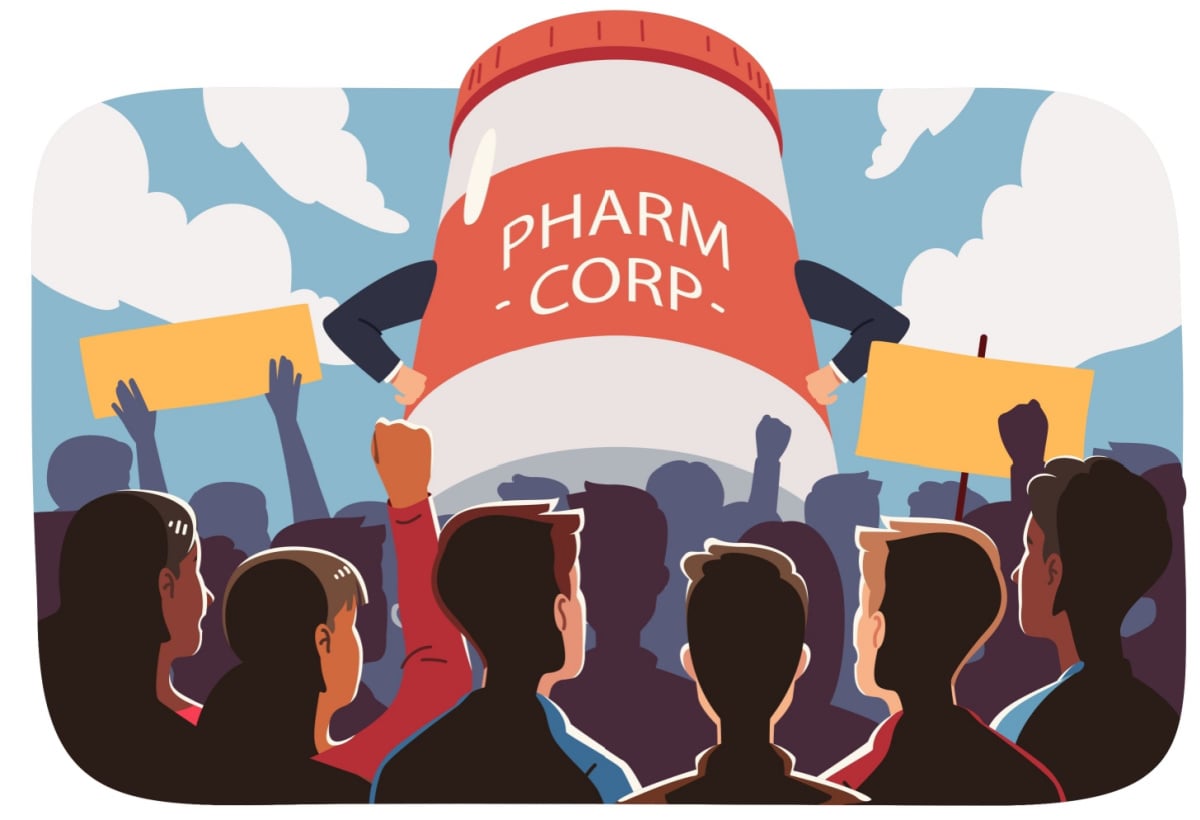Newsletter Signup – Under Article / In Page
“*” indicates required fields
The past year has been one of ups and downs for the biotech and healthcare sectors in the U.K. A report by the UK BioIndustry Association (BIA) revealed how investments played a part in research and development (R&D) in the country.
Equity financing was at quite a high last year. Around £3.5 billion ($4.36 million) was raised by the industry – a 94% increase from 2023. This highlights “renewed confidence and the resilience of the U.K. biotech industry,” according to Steve Bates, chief executive officer (CEO) of BIA.
“This year’s figures demonstrate that biotech is a vibrant growth sector of the U.K. economy with an exceptional ability to attract global investment. From pioneering early-stage research to scaling groundbreaking therapies, U.K. life science companies are addressing some of the world’s most urgent health challenges. The strong international investor interest we’ve seen this year reaffirms global confidence in the U.K.’s life sciences innovation ecosystem,” said Bates in a press release.
Venture capital increases by 64.8% in 2024
The venture capital landscape soared by 64.8% as well since 2023. The sector raised £2.06 billion (£2.56 billion) and, this time around, attracted investors from North America, who were keen on later-stage deals. Still, U.K.-based investors dominated the industry, accounting for 51% of total investments, according to the report.
While later-stage deals, especially series B rounds, amassed tons of funding, the same enthusiasm wasn’t present for seed investments. But this is not new. Investors tend to be wary of funding early-stage projects because of the risk involved, which often points to uncertain clinical trial results and the long time it takes to bring drug candidates to the clinic and beyond, according to a report by Investopedia. In fact, technologies like cell therapies can take from years to decades to develop.
The top venture deal was raised by cancer therapeutics company Ottimo Pharma. The U.K. biotech pocketed £110.5 million ($137.37 million) in a series A round last year. This was followed closely by antibody-drug conjugate developers Pheon Therapeutics and Myrix Bio, which secured £95.7 million ($118.95 million) in a series B round and £89.8 million ($111.60 million) in a series A round, respectively.
Meanwhile, if you’re familiar with the U.K.’s venture capital space, you have probably heard of Abcam’s CEO and co-founder Jonathan Milner. The serial investor poured money into the largest seed round worth £28 million ($34.78 million) last year for Relation Therapeutics, a machine learning-driven biotech. Milner stood out with 19 investments, the highest deal count last year, beating venture capital M Ventures, which forged 12 deals. Milner was in the public eye in 2023 when Abcam became the subject of a $5.7 billion acquisition by the Danaher Corporation, which he had publicly opposed but failed to stop.
International life science investors flock to the U.K.
The report also found that young biotechs drew interest from international investors as investors in North America led 38% of series B rounds for these companies. On the other hand, seed funding was mainly backed by U.K.-based funders.
This may be because of varying investor attitudes on both sides of the Atlantic. “In the U.S., investors still appear to have a more optimistic outlook and a higher risk tolerance,” said Velyana Borisova, a venture capital lawyer, in a report by Withers Worldwide.
This translates into U.S. investors investing more and seemingly making quicker decisions, according to Borisova. Moreover, there are way more venture capital hubs in the U.S. compared to the U.K. – which is limited to the golden triangle of Cambridge, Oxford, and London, Borisova explained. Plus, the U.S. has a wider pool of biotech investors, which is a more established venture capital market with larger dedicated funds for life sciences.
However, in Europe, the U.K.’s venture capital industry came out on top, bringing in 37% of total capital investment into European life science companies, followed by Switzerland at 19%.
IPOs stagnate in 2024
Still, last year was somewhat of a mixed bag for life science funding in the U.K. Not a single U.K. biotech went public last year. The initial public offering (IPO) market has been stagnant for two years in a row now, which is a blow as IPOs are a significant way for life science companies to scale up their innovations.
In particular, London hasn’t been the preferred market for quite a long time now, according to Martin Turner, associate director of Policy, Public Affairs, and Investors Relations at the BIA, in an article by Labiotech.
But this isn’t a phenomenon confined to the U.K. In Europe, there was only one company that went public – Sweden’s Cinclus Pharma for 715 million kronor ($68 million).
“This ongoing absence reflects the challenging macroeconomic environment, including lingering high interest rates and geopolitical uncertainties, which have dampened investor confidence in public markets. Companies remain cautious, opting to delay public listings to avoid unfavorable valuations,” the BIA report stated.
However, things were a bit different in the U.S., where £3 billion was raised by IPOs and a spike occurred in the second half of last year.
U.K. biotech sector: follow-on deals soared but not enough grants
Nevertheless, there was still a surge in follow-on financing early last year. Precision medicine developer Bicycle Therapeutics bagged $555 million through a private placement equity investment – a funding method that was globally trending two years ago. But in the U.K., this type of financing more than doubled in deal size from £16.7 million ($20.75 million) in 2023 to £38.3 million ($47.59 million) last year.
In fact, U.K. biotechs racked up £1.47 billion ($1.83 billion) in follow-on deals last year, the highest it’s been in four years, reflecting continued confidence in the U.K.’s life science sector.
However, 2024 saw a 30% plummet in the grants arena, with the average reward being £503,330 ($6,24,972). The U.K.’s general election in July may have side-tracked things. Also, the BIA pointed out that 2024 was at the end of the U.K. government’s spending review period. Notable grant awarders were Innovate UK – especially involved in early-stage R&D – the Michael J. Fox Foundation, and the Bill & Melinda Gates Foundation.
Meanwhile, on the mergers and acquisitions (M&A) front, the total deal value was around £3.2 billion ($3.97 billion) – not including the undisclosed transactions. Merck’s £2.4 billion ($2.98 billion) buyout of British biotech EyeBio accounted for most of it. And so did American company Recursion’s acquisition of U.K.-based artificial intelligence drug discovery company Exscientia for £535 million ($664.37 million).
At the same time, the London-headquartered pharma giant GSK also spent a pretty penny on licensing deals last year to bolster drug development specifically in the fields of ADCs and neuromedicines.
U.K. life sciences sector showed resilience
Although life sciences stocks in the U.K. were off to a bumpy start last year and continued to face challenges, the industry “mirrored the broader market trends.”
“From a long-term perspective, however, U.K. biotech has demonstrated notable resilience,” the report stated. “Over the past five years, U.K. biotech stocks have consistently outperformed broader indices such as the FTSE All-Share and even the Nasdaq Biotech index, delivering superior returns thanks to a surge during the pandemic that has not wholly subsided. U.K. biotech shares are still significantly higher than pre-pandemic levels, though they have not matched their peak of 550% growth observed in December 2021.”
While challenges exist as young biotechs struggle to get seed funding, and so does the uncertainty around the impact of the new U.S. presidency on a global scale, there is optimism in the life sciences sector in the U.K. for 2025. There are hopes of a small rise in IPOs too, although it may be too soon to tell.
Partnering 2030: Biopharma Report
Download Inpart’s latest report revealing the priorities of out-licensers worldwide.

























No Comments
Leave a comment Cancel